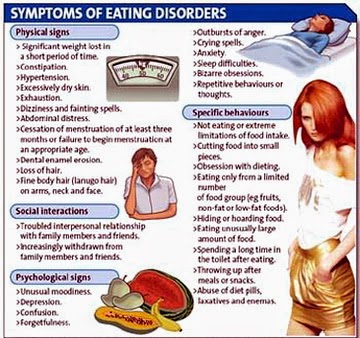What are the types of anxiety disorders? How to identify an anxiety disorder? They are a group of mental illnesses, and the distress they cause can keep you from carrying on with your life normally.
Anxiety disorders are different , though. For people who have one, worry and.

Two of the most common types of anxiety disorders are social anxiety disorder and phobias. Psychologists convene regularly to discuss how to categorize anxiety disorders , and according to recent scientific interpretations, there are categories of anxiety disorders. Many people with anxiety experience symptoms of more than one type of anxiety condition, and may experience depression as well. Your symptoms may not go away on their own and if left untreate they can start to take over your life.
There are different types of anxiety. Compare your symptoms to the criteria in the DSM-5. Experiencing occasional anxiety is a normal part of life.
However, people with anxiety disorders frequently have intense, excessive and persistent worry and fear about everyday situations.
Which Company Is Disrupting a $4Billion Dollar Industry? Read our Report and Find Out! These include: panic disorder: experiencing recurring panic attacks at unexpected times.
A person with panic disorder may live in fear of the. Occasional anxiety is an expected part of life. You might feel anxious when faced with a problem at work, before taking a test, or before making an important decision.
But anxiety disorders involve more than temporary worry or fear. For a person with an anxiety disorder, the anxiety does not go away. If you are looking for a professional to diagnose or treat you for one or more of these DSM-V anxiety disorders , remember to address anxiety along with other issues.
Because there are lots of possible symptoms of anxiety this can be quite a broad diagnosis, meaning that the problems you experience with GAD might be quite. If you have more severe anxiety than most other people you know, then it may be more than normal anxiety. People who only fear performance situations tend to be different from those with generalized social anxiety disorder in terms of how old they are when they first experience anxiety , the physical symptoms they experience, and how they respond to treatment. This section provides an overview of the most common types of anxiety disorders.
The main symptom of GAD is over worrying about different activities and events. Generalised anxiety disorder (GAD) GAD is the most common type of anxiety disorder. This may feel out of your control.
You feel anxious a lot of the time if you have GAD. It can alert us to dangers and help us prepare and pay attention. While anxiety disorders share several characteristics, it can manifest in different ways. Doctors have identified six different types of anxiety disorders.
Learn more about generalized anxiety disorder, panic attacks, obsessive-compulsive disorder (OCD), phobias, PTS and social anxiety disorder. This is particularly true for symptom overlap between different anxiety disorders , depression, and alcohol and drug abuse. A related phenomenon is the emergence of different disorders in the same patient over a lifetime.
When you struggle with an anxiety disorder, it affects your entire life. It impairs or interferes with your schoolwork, job and daily life. Avoidance is a symptom of some anxiety disorders and can be quite debilitating. In other words, the anxiety can cause you to avoid normal activities.
So there you have it – different anxiety disorders , with symptoms described in detail. If you’re interested in seeing how these disorders are categorised- we’ve added them here. The different anxiety disorders that are most common today can leave an individual constantly overwhelme uneasy, and nervous.
Although some temporary anxiousness can be considered normal, understanding whether or not a person has an anxiety disorder can make the difference in getting the needed treatment or not. Each anxiety disorder has different symptoms, but Ken Duckworth, M the medical director for the National Alliance on Mental Illness and an assistant professor of psychiatry at Harvard Medical.
No comments:
Post a Comment
Note: Only a member of this blog may post a comment.